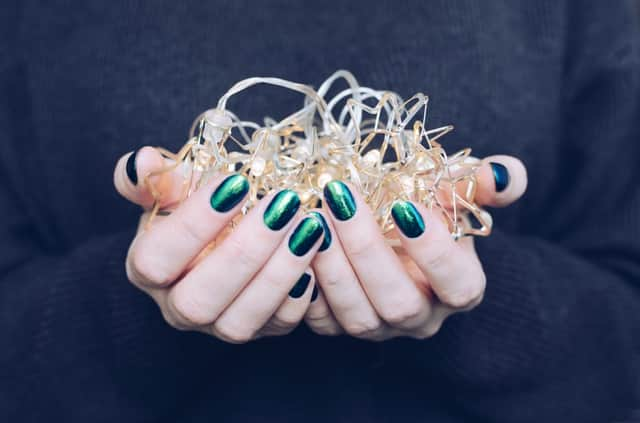People are putting up their Christmas decorations in March - here's why


As the coronavrius pandemic causes more disruption to daily life, many people have reverted to simple pleasures - including enjoying their Christmas decorations again.
Just last month it was reported that some members of the public were re-dressing their Christmas tree for Valentine's Day, and now many people have brought out their festive decorations again in an attempt to spread some cheer, as we are all now spending more time indoors.
Advertisement
Hide AdAdvertisement
Hide AdThis lead to the hashtag #ChristmasInMarch trending on social media, as people shared pictures of their springtime festive decorations.
Posting on Twitter, one user said, "What a great idea to put up Christmas lights! We all need hope in this terrible time of worldwide #coronvirus pandemic."
Another added, "Saturday night we turned our Christmas lights back on and will stay on to share hope and spread bring some cheer. Hopefully brings a smile!"
As well as this trend, people have taken to social media to suggest festive playlists. Others are watching festive films as a way to entertain kids, who are no longer able to attend school.
Advertisement
Hide AdAdvertisement
Hide AdThis non-seasonal surge has come about in the wake of many governments plunging their countries into lockdown, including the UK as of 23 March. It seems not even the coronavirus can dampen some people's festive cheer.
Coronavirus: the facts
What is coronavirus?
COVID-19 is a respiratory illness that can affect lungs and airways. It is caused by a virus called coronavirus.
What caused coronavirus?
The outbreak started in Wuhan in China in December 2019 and it is thought that the virus, like others of its kind, has come from animals.
How is it spread?
As this is such a new illness, experts still aren’t sure how it is spread. But, similar viruses are spread in cough droplets. Therefore, covering your nose and mouth when sneezing and coughing, and disposing of used tissues straight away is advised. Viruses like coronavirus cannot live outside the body for very long.
What are the symptoms?
Advertisement
Hide AdAdvertisement
Hide AdThe NHS states that the symptoms are: a dry cough, high temperature and shortness of breath - but these symptoms do not necessarily mean you have the illness. Look out for flu-like symptoms, such as aches and pains, nasal congestion, runny nose and a sore throat. It’s important to remember that some people may become infected but won’t develop any symptoms or feel unwell.
What precautions can be taken?
Washing your hands with soap and water thoroughly. The NHS also advises to cover your mouth and nose with a tissue or your sleeve (not your hands) when you cough or sneeze; put used tissues in the bin immediately and try to avoid close contact with people who are unwell. Also avoiding touching eyes, nose and mouth unless your hands are clean.
Government advice
As of Monday 23 March the prime minister has put the UK into lockdown and instructed all citizens to stay at home. People can only leave their homes to exercise once a day, go shopping for food and medication, travel for medical needs or to care for a vulnerable person, and travel to work only if essential. Police will be able to enforce these restrictions.
All non-essential shops will close with immediate effect, as will playgrounds, places of worship and libraries. Large events or gatherings of more than two people cannot go ahead, including weddings and celebrations. Funerals can only be attended by immediate family. Children of separated parents can go between both parents' homes.
Advertisement
Hide AdAdvertisement
Hide AdAnyone with a cough or cold symptoms needs to self-isolate with their entire household for 14 days.
The government has now instructed bars, restaurants, theatres and non-essential businesses to close and will review on a ‘month to month’ basis. Schools closed from Friday 20 March for the foreseeable future, and exams have been cancelled.
The over 70s or anyone who is vulnerable or living with an underlying illness are being asked to be extra careful and stay at home to self-isolate. People with serious underlying health conditions will be contacted and strongly advised to undertake "shielding" for 12 weeks.
For more information on government advice, please check their website.
Should I avoid public places?
Advertisement
Hide AdAdvertisement
Hide AdYou should now avoid public places and any non-essential travel. Travel abroad is also being advised against for the next 30 days at least, and many European countries have closed their borders.
What should I do if I feel unwell?
Don’t go to your GP but instead call NHS 111 or look online at the coronavirus service that can tell you if you need medical help and what to do next.
When to call NHS 111
NHS 111 should be used if you feel unwell with coronavirus symptoms, have been in a country with a high risk of coronavirus in the last 14 days or if you have been in close contact with someone with the virus.
Sources: World Health Organisation and NHS